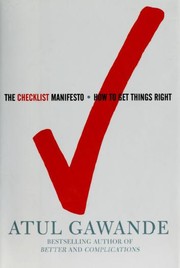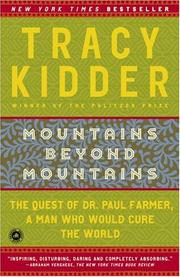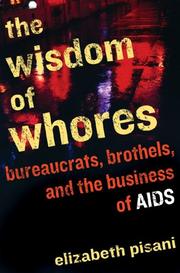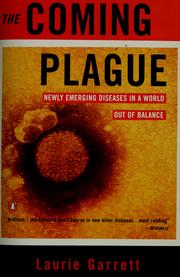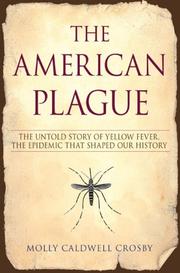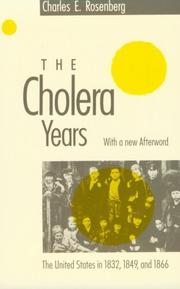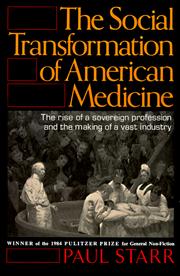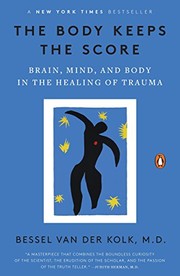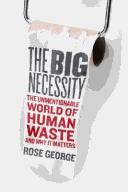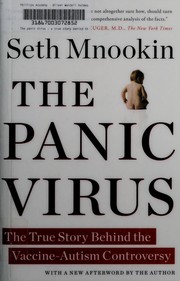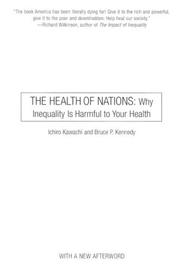Are you searching for a compelling book on public health that delves deep into the crucial issues affecting our society? Look no further! We’ve compiled a list of the 20 best public health books that offer valuable insights, expert analysis, and thought-provoking discussions on the challenges and advancements in the field of public health. Whether you’re a student, professional, or simply curious about this vital topic, these books are sure to enlighten and inspire you.
Contents
- 1 20 Best Books About Public Health
- 2 The Ghost Map
- 3 The Immortal Life of Henrietta Lacks
- 4 The Checklist Manifesto
- 5 The Emperor of All Maladies
- 6 Mountains Beyond Mountains
- 7 The Hot Zone
- 8 The Great Influenza
- 9 The Wisdom of Whores
- 10 The Coming Plague
- 11 The American Plague
- 12 The Cholera Years
- 13 The Health Gap
- 14 The Social Transformation of American Medicine
- 15 The Body Keeps the Score
- 16 The Big Necessity
- 17 The Birth of the Pill
- 18 The Panic Virus
- 19 The End of Epidemics
- 20 The Health of Nations
- 21 The Death of Expertise: The Campaign Against Established Knowledge and Why it Matters
- 22 Conclusion
- 23
- 24 Discover the Best Rage Books in the 2024 Updated Edition
- 25 Unveiling the Best Trans Kids Books in this 2024 Update
- 26 20 New York In The 1970S Best Books to Read – The 2024 Edition
20 Best Books About Public Health
The Ghost Map
by Steven Johnson
The Ghost Map by Steven Johnson is a captivating book on public health that tells the story of a devastating cholera outbreak in London in 1854. Johnson weaves together a compelling narrative that combines history, science, and urban planning to explore how a deadly disease spread through the city and the pioneering efforts of Dr. John Snow to map its transmission. The book offers a fascinating insight into the development of epidemiology and the impact of urban infrastructure on public health. Johnson’s vivid storytelling and meticulous research make this book about public health a gripping and enlightening read, shedding light on the importance of sanitation, water supply, and the role of public health measures in preventing the spread of infectious diseases. The Ghost Map is a must-read for anyone interested in the history of public health and the triumphs of scientific inquiry.
The Immortal Life of Henrietta Lacks
by Rebecca Skloot
The Immortal Life of Henrietta Lacks by Rebecca Skloot is a captivating non-fiction book on public health that tells the story of Henrietta Lacks, a poor African American woman whose cells were taken without her knowledge in 1951 and became one of the most important tools in medicine. Skloot weaves together the personal story of Henrietta and her family with the scientific breakthroughs and ethical debates surrounding her cells, known as HeLa. This thought-provoking book about public health raises important questions about medical ethics, the impact of race and class on healthcare, and the exploitation of vulnerable populations. Through Skloot’s meticulous research and engaging storytelling, readers gain a deeper understanding of the intersection of science, ethics, and human rights in the context of public health.
The Checklist Manifesto
by Atul Gawande
The Checklist Manifesto by Atul Gawande is a fascinating exploration of the power of simple checklists in complex and high-stakes environments. Through engaging anecdotes from fields as diverse as surgery, aviation, and construction, Gawande makes a compelling case for the value of checklists in preventing errors and improving efficiency. This book is not just about public health; it’s about the importance of organization and communication in any complex system. Gawande’s engaging writing style and real-world examples make this book a compelling read for anyone interested in improving their own processes and systems, whether in the medical field or beyond. The Checklist Manifesto is a must-read for anyone looking to understand the impact of small, straightforward tools in the face of dauntingly complex challenges.
The Emperor of All Maladies
by Siddhartha Mukherjee
The Emperor of All Maladies is a captivating book about the history of cancer and its impact on humanity. Written by Siddhartha Mukherjee, this Pulitzer Prize-winning book provides a comprehensive overview of the disease, from its earliest documented cases to modern-day treatments and research. Through engaging storytelling and in-depth research, Mukherjee delves into the complexities of cancer, exploring its biological origins, societal perceptions, and the tireless efforts of scientists and doctors to combat it. This compelling narrative not only educates readers about the intricacies of cancer but also sheds light on the importance of public health initiatives and medical advancements in the fight against this formidable adversary. The book offers a thought-provoking look at the intersection of science, medicine, and society, making it a must-read for anyone interested in the field of oncology or public health.
Mountains Beyond Mountains
by Tracy Kidder
Mountains Beyond Mountains by Tracy Kidder is a captivating non-fiction book about the inspiring work of Dr. Paul Farmer as he and his colleagues strive to provide quality healthcare to the impoverished communities in Haiti and other parts of the world. This compelling book on public health delves into the challenges and triumphs of Farmer’s organization, Partners in Health, as they battle against infectious diseases and inadequate healthcare infrastructure. Kidder’s immersive storytelling and vivid descriptions bring to life the dedication and determination of Farmer and his team as they work tirelessly to improve the lives of the underserved. Mountains Beyond Mountains is a must-read for anyone interested in global health, social justice, and the impact of individuals on the greater good.
The Hot Zone
by Richard Preston
The Hot Zone by Richard Preston is a gripping non-fiction book about the terrifying world of deadly viruses and the brave individuals who work to contain them. Set in the field of infectious diseases, this book provides a thrilling account of real-life outbreaks and the efforts to prevent global pandemics. With its heart-pounding narrative, The Hot Zone delves into the world of virology and the dangers posed by lethal pathogens. This book on public health is a page-turner that will leave readers on the edge of their seats, while also shedding light on the critical work of epidemiologists, doctors, and scientists who risk their lives to protect the public from deadly diseases. The Hot Zone is a must-read for anyone interested in the fascinating and often frightening world of infectious diseases.
The Great Influenza
by John M. Barry
The Great Influenza by John M. Barry is a compelling book on public health that delves into the gripping history of the 1918 influenza pandemic. Barry skillfully weaves together scientific research, political decisions, and personal accounts to provide a comprehensive understanding of the devastating impact of the virus. The book explores the challenges faced by medical professionals, the errors made by public health officials, and the societal consequences of the pandemic. Through vivid storytelling and meticulous research, Barry sheds light on the complex intersection of science, politics, and public health during this catastrophic event. The Great Influenza is a thought-provoking book about public health that offers valuable insights into the importance of preparedness, collaboration, and leadership in the face of global health crises.
The Wisdom of Whores
by Elizabeth Pisani
The Wisdom of Whores by Elizabeth Pisani is a captivating book on public health that takes readers on a journey through the complexities of global HIV/AIDS prevention. Pisani, a former epidemiologist and journalist, provides a thought-provoking and often humorous account of her experiences working in the field of HIV prevention. Through her firsthand experiences, she challenges traditional approaches to public health and offers insightful perspectives on the intersection of politics, culture, and science in the fight against HIV/AIDS. The book offers a unique blend of personal anecdotes, research, and social commentary, making it a compelling read for anyone interested in global health issues. Whether you’re a student, professional, or simply curious about the topic, this book about public health is sure to leave a lasting impression.
The Coming Plague
by Laurie Garrett
The Coming Plague by Laurie Garrett is a groundbreaking book on public health that explores the history and future of infectious diseases. Garrett provides a compelling and eye-opening account of how diseases like Ebola, AIDS, and tuberculosis have shaped human history and continue to pose serious threats to global health. Through detailed research and compelling storytelling, she delves into the complex factors that contribute to the spread of these diseases, including globalization, climate change, and antibiotic resistance. The book serves as a wake-up call, urging readers to recognize the interconnectedness of public health and the importance of proactive measures to prevent and control infectious diseases. With its engaging narrative and in-depth analysis, The Coming Plague is a must-read for anyone interested in understanding the challenges and complexities of global health.
The American Plague
by Molly Caldwell Crosby
The American Plague by Molly Caldwell Crosby is a captivating book on public health that delves into the devastating yellow fever outbreak in Memphis, Tennessee in 1878. Crosby expertly weaves together the personal stories of the city’s residents, the heroic efforts of medical professionals, and the groundbreaking scientific discoveries that eventually led to the control of the disease. This book about public health sheds light on the history of infectious diseases and the tireless battle to understand and combat them. With meticulous research and compelling storytelling, Crosby brings to life the fear, resilience, and triumph of a community facing a deadly epidemic. The American Plague is a must-read for anyone interested in the history of medicine, infectious diseases, and the profound impact of public health interventions.
The Cholera Years
by Charles E. Rosenberg
The Cholera Years by Charles E. Rosenberg is a captivating book on public health that delves into the devastating cholera epidemics that swept through the United States in the 19th century. This compelling work of historical analysis explores the social, cultural, and medical responses to the outbreaks, offering a fascinating glimpse into the intersection of disease, public health, and society. Rosenberg skillfully examines the ways in which the cholera epidemics shaped public health policies and practices, and how they influenced the development of modern medicine. Through meticulous research and engaging storytelling, the author sheds light on the profound impact of these public health crises on American society. The Cholera Years is a must-read for anyone interested in the history of public health and the enduring relevance of disease control efforts.
The Health Gap
by Michael Marmot
The Health Gap by Michael Marmot is a groundbreaking book on public health that delves into the social determinants of health and the pervasive health inequalities that exist in our society. Marmot, a renowned epidemiologist and public health expert, explores how factors such as income, education, and social status significantly impact an individual’s health outcomes. Through compelling research and real-life examples, he reveals the stark disparities in health and longevity that exist between different social and economic groups. Marmot also offers insightful solutions and policy recommendations to address these inequalities and create a fairer and healthier society for all. This eye-opening book about public health is essential reading for anyone interested in understanding and addressing the complex issues surrounding health disparities and social justice.
The Social Transformation of American Medicine
by Paul Starr
The Social Transformation of American Medicine by Paul Starr is a groundbreaking book on public health that delves into the historical and sociological evolution of healthcare in the United States. Starr skillfully examines how the medical profession has transformed from a largely unregulated and decentralized system to a highly organized and specialized industry. He explores the impact of various factors such as technological advancements, economic influences, and government policies on the development of the healthcare system. Through insightful analysis and compelling narratives, Starr sheds light on the complex relationships between medicine, politics, and society, making this public health book a must-read for anyone interested in understanding the intricate dynamics of healthcare in America.
The Body Keeps the Score
by Bessel van der Kolk
The Body Keeps the Score by Bessel van der Kolk is a groundbreaking book on public health that delves into the effects of trauma on the body and mind. Through compelling case studies and scientific research, van der Kolk explores how trauma can manifest as physical symptoms and impact mental well-being. This insightful book about public health offers a holistic understanding of trauma and provides valuable insights into the potential for healing through various therapeutic approaches. Van der Kolk’s expertise as a leading expert in the field of trauma and psychiatry shines through in this compelling and informative public health book, making it an essential read for anyone interested in the intersection of mental health and physical well-being.
The Big Necessity
by Rose George
The Big Necessity by Rose George is a captivating book on public health that takes a deep dive into the world of human waste, sanitation, and the global impact of inadequate facilities. George explores the complex and often overlooked issues surrounding sanitation, from the lack of access to toilets in developing countries to the environmental and health consequences of improper waste management. The book sheds light on the challenges and solutions to this global crisis, offering a thought-provoking and informative look at the vital importance of proper sanitation for public health. With a compelling blend of investigative journalism and scientific research, The Big Necessity is a must-read for anyone interested in understanding the critical role of sanitation in human well-being and the broader implications for society.
The Birth of the Pill
by Jonathan Eig
The Birth of the Pill by Jonathan Eig is a compelling book about the development of the contraceptive pill, a groundbreaking innovation in reproductive health. Eig takes readers on a fascinating journey through the lives of the four individuals who played pivotal roles in creating the pill. From the struggles and triumphs of Margaret Sanger, Gregory Pincus, John Rock, and Katharine McCormick, to the intense scientific and ethical debates surrounding the pill’s development, this book offers a captivating look at a pivotal moment in the history of reproductive health. Through meticulous research and vivid storytelling, Eig provides a comprehensive account of the societal, political, and medical factors that shaped this transformative invention. The Birth of the Pill is a must-read for anyone interested in the intersection of science, medicine, and social change, making it a standout book about public health.
The Panic Virus
by Seth Mnookin
The Panic Virus by Seth Mnookin is a compelling book about public health that delves into the controversial and emotionally charged topic of vaccines. Mnookin explores the history of vaccines, the rise of the anti-vaccine movement, and the impact of misinformation on public health. Through in-depth research and interviews, he examines the roots of vaccine skepticism and the consequences of vaccine refusal. This thought-provoking book on public health challenges readers to critically evaluate the evidence behind vaccine safety and efficacy, and to consider the broader implications for public health policy. Mnookin’s engaging storytelling and thorough analysis make The Panic Virus a must-read for anyone interested in understanding the intersection of science, public health, and society.
The End of Epidemics
by Jonathan D. Quick
The End of Epidemics by Jonathan D. Quick is a compelling book on public health that examines the global threat of infectious diseases and offers a roadmap for preventing future pandemics. Dr. Quick, an expert in global health and infectious diseases, provides a thought-provoking analysis of the factors contributing to the spread of epidemics and the critical steps needed to halt their progression. Through engaging storytelling and insightful research, the author presents a comprehensive strategy for building a more resilient and proactive global health system. This book about public health is not only an eye-opening exploration of the current state of global health, but also a call to action for individuals, organizations, and governments to prioritize epidemic preparedness and response. The End of Epidemics is a must-read for anyone interested in the urgent and vital field of public health.
The Health of Nations
by Ichiro Kawachi
The Health of Nations by Ichiro Kawachi is a captivating book on public health that explores the social determinants of health and their impact on the well-being of individuals and societies. Kawachi delves into the intricate connections between health and various societal factors, such as income inequality, education, and social support. Through compelling research and insightful analysis, he sheds light on the disparities in health outcomes across different populations and offers thought-provoking solutions to address these challenges. This thought-provoking book about public health provides a comprehensive understanding of the complex interplay between social, economic, and environmental factors that influence health, making it an essential read for anyone interested in understanding and improving public health.
The Death of Expertise: The Campaign Against Established Knowledge and Why it Matters
by Tom Nichols
The Death of Expertise by Tom Nichols is a thought-provoking book that delves into the increasing disdain for established knowledge and expertise in our society. Nichols, a professor and expert in national security, explores the reasons behind this trend and its impact on public health, politics, and everyday decision-making. He discusses how the internet and social media have contributed to the proliferation of misinformation, leading to a decline in trust in experts and the erosion of critical thinking. Nichols argues that this shift has serious consequences for public health and the well-being of society as a whole. Through engaging anecdotes and rigorous analysis, he makes a compelling case for the importance of expertise and the need to restore respect for established knowledge. This book about public health is a must-read for anyone concerned about the state of public discourse and the implications for our collective well-being.
Conclusion
These 20 books about Public Health offer a comprehensive look at the various aspects of public health, from the history of diseases to the impact of public policy. Whether you’re a student, professional, or simply interested in the topic, these books provide valuable insights and knowledge that can help shape our understanding of public health and its importance in society. With engaging narratives and well-researched content, these books are essential reads for anyone looking to deepen their understanding of public health issues.
Which Public Health book is best?
The best book on Public Health can vary with personal preference, but three widely recommended titles are:
- The Ghost Map by Steven Johnson,
- The Immortal Life of Henrietta Lacks by Rebecca Skloot,
- The Checklist Manifesto by Atul Gawande.
Each offers valuable insights and could be a great starting point.
What are the best books to learn about Public Health?
For those looking to learn about Public Health, there is a wealth of literature that can provide a comprehensive understanding of the subject. Some of the most highly recommended books include:
- The Ghost Map by Steven Johnson,
- The Immortal Life of Henrietta Lacks by Rebecca Skloot,
- The Checklist Manifesto by Atul Gawande,
- The Emperor of All Maladies by Siddhartha Mukherjee,
- Mountains Beyond Mountains by Tracy Kidder,
- The Hot Zone by Richard Preston,
- The Great Influenza by John M. Barry,
- The Wisdom of Whores by Elizabeth Pisani,
- The Coming Plague by Laurie Garrett,
- The American Plague by Molly Caldwell Crosby
These books offer a range of perspectives on Public Health, covering various aspects and approaches to the subject.
What are the best books on Public Health?
The best books on Public Health include:
- The Ghost Map by Steven Johnson,
- The Immortal Life of Henrietta Lacks by Rebecca Skloot,
- The Cholera Years by Charles E. Rosenberg,
- The Health Gap by Michael Marmot,
- The Wisdom of Whores by Elizabeth Pisani,
- The Hot Zone by Richard Preston.
Each offers unique insights into the subject. While these books on the topic of Public Health are highly regarded, it’s important to note that any list of ‘best’ books is subjective and reflects a range of opinions.
What are the best Public Health books of all time?
Choosing the best Public Health books of all time can vary depending on who you ask, but seven titles that are often celebrated include
- The Ghost Map by Steven Johnson,
- The Immortal Life of Henrietta Lacks by Rebecca Skloot,
- Mountains Beyond Mountains by Tracy Kidder,
- The Wisdom of Whores by Elizabeth Pisani,
- The American Plague by Molly Caldwell Crosby,
- The Health Gap by Michael Marmot,
- and The Cholera Years by Charles E. Rosenberg.
Each of these books has made a significant impact in the field of Public Health and continues to be influential today.



